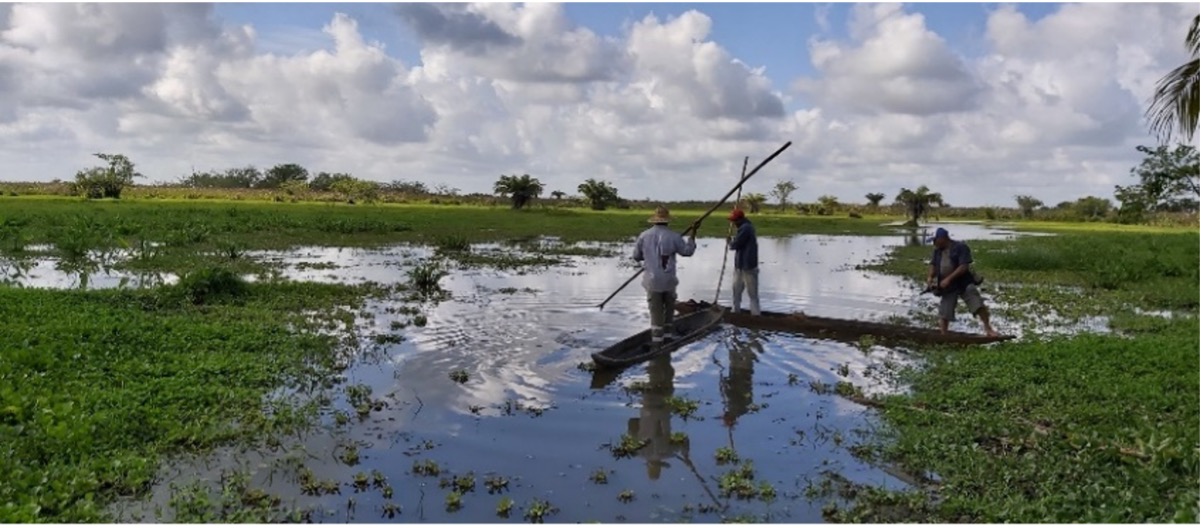

The area is located on a wetland system that provides services in natural flood protection, purification and water supply as well as their economic value in community livelihoods. Climate change has increased the community’s reliance on these services as water has become scarcer and flooding more frequent.
The project has been working with Ministry of Environment, the Alexander von Humboldt Research Institute and local environmental departments in the restoration of key wetland areas. The restoration work is guided by the hydrological flow modelling that was developed in the region by the National Adaptation Fund that has served as an important input for local planning. Restoration work is organized by community restoration plans and environmental monitoring carried out by local communities, particularly women. Restoration actions include a productive landscape approach that prizes ecosystem compatibility of productive activities in the region including agro forestry and silvo pastoral activities. This includes identifying ecosystem compatible livelihood opportunities that are inclusive to women and indigenous peoples. The project is working with livestock associations to develop a code of practice along the wetlands as part of its approach for sustainable ecosystem management.
Knowledge of the wetland hydrology, partnership with national and local environmental institutions and working with communities have been essential enabling factors for these activities to ensure that restoration is aligned with local and national planning while providing benefits and hence buy in with local populations.
Working with productive associations to enhance capacity for sustainable productive management allows the project to build strategic partnerships for ecosystem restoration while creating awareness on the benefits provided by the wetland ecosystem. The wetland ecosystem is an important part of the La Mojana identity, hence the project has worked with communities to regain this amphibious identity by working with the ecosystem’s natural pulses rather than against them. In this sense the restoration work is part of the community-based adaptation strategy that the project has built upon that looks to ensure that the resilience takes into account community needs and that benefits flow down to local communities in a manner that is inclusive. This is a key aspect of the project’s theory of change and is part of the project’s sustainability strategy by allowing a culture change to agro-productive activity in the area.